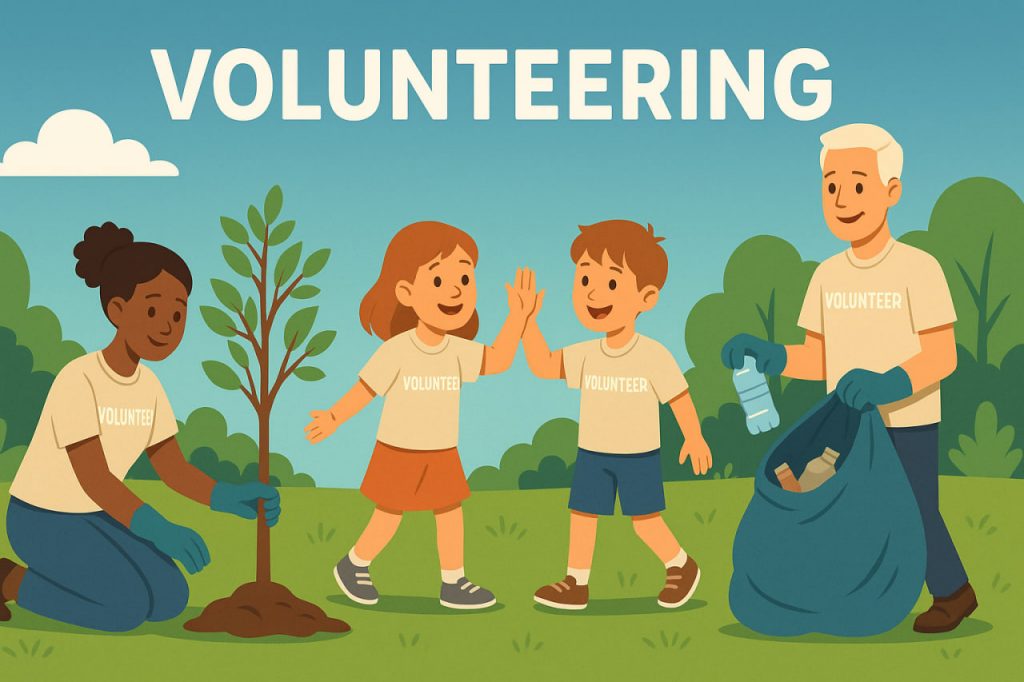Volunteering is not only an act of kindness — it is also a scientifically proven way to improve both mental and physical health. When people help others, they activate psychological and biological processes that reduce stress, enhance happiness, and even strengthen the immune system. Whether it’s caring for animals, planting trees, or supporting those in need, every act of volunteer work creates a ripple effect of well-being that benefits both the individual and society.
Emotional and Mental Health Benefits
Helping others triggers the release of endorphins, the brain’s natural “feel-good” chemicals. This phenomenon, often called the “helper’s high,” produces a sense of purpose, satisfaction, and inner peace. Volunteers often report lower levels of anxiety and depression because meaningful service provides emotional connection and reduces feelings of isolation. Psychologists note that people who engage in regular volunteer work develop stronger resilience and optimism, even in difficult life situations.
Physical Health Improvements
Volunteering can also have measurable physical benefits. Active forms of volunteering — such as community clean-ups, food distribution, or working in shelters — involve light to moderate physical activity, improving cardiovascular health and muscle tone. Studies show that adults who volunteer regularly tend to have lower blood pressure, better sleep, and even longer life expectancy compared to those who don’t. Acts of generosity reduce cortisol levels (the stress hormone), helping maintain overall balance in the body.
Social Connections and Longevity
Human connection is a vital part of health. Volunteering naturally brings people together, fostering friendships and a sense of belonging. This social engagement can be especially beneficial for older adults, protecting against loneliness and cognitive decline. In fact, social scientists have found that strong community involvement is one of the most reliable predictors of a long and fulfilling life.
Personal Growth and Cognitive Health
Volunteering encourages people to learn new skills, adapt to challenges, and think creatively. Teaching others, organizing events, or solving problems in a team stimulates cognitive functions and keeps the brain active. For young volunteers, it builds empathy and leadership; for adults, it offers a sense of meaning beyond work; and for seniors, it provides mental stimulation and purpose after retirement.
The Broader Impact
Beyond individual well-being, volunteering contributes to the health of communities. Cleaner parks, safer neighborhoods, and stronger social support systems reduce stress levels for everyone. When people work together for a cause, they build collective resilience — a kind of social immune system that helps societies thrive in times of crisis.
Interesting Facts
- People who volunteer for 100 hours a year or more are significantly happier than those who don’t.
- Volunteering releases the same types of chemicals in the brain as exercise and meditation.
- In the United States alone, volunteers contribute billions of dollars in unpaid labor each year, strengthening the economy and community health.
- Studies show that even two hours of volunteering per week can improve well-being and self-esteem.
Glossary
- Endorphins — natural chemicals produced by the brain that create feelings of happiness and reduce pain.
- Cortisol — a hormone released in response to stress; high levels can harm health over time.
- Cardiovascular health — the condition of the heart and blood vessels, vital for overall physical well-being.
- Resilience — the ability to recover quickly from stress or adversity.
- Community engagement — active participation in social or civic activities to improve collective well-being.


